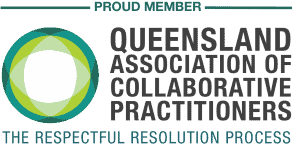Sole Parental Responsibility: A Comprehensive Guide for Parents
When parents separate or divorce, deciding on the best parenting arrangements for children is often one of the most challenging aspects of the process. One of the most significant and often misunderstood legal concepts in parenting disputes is sole parental responsibility. In this guide, we’ll explore what sole parental responsibility means, how it differs from sole custody, how it is obtained, and what recent changes to Australian family law mean for parents.
What is Parental Responsibility?
Under section 61B of the Family Law Act 1975, parental responsibility refers to “all the duties, powers, responsibilities, and authority which, by law, parents have in relation to children.” Parental responsibility is about making major long-term decisions that affect a child’s life, such as:
- Education: The school the child will attend.
- Health: Decisions about major medical treatments or surgeries.
- Religion: A child’s spiritual upbringing.
- Relocation: Moving to a different city or country that could affect the child’s relationship with a parent.
Sole parental responsibility occurs when one parent has the legal authority to make these decisions without consulting the other parent. This is distinct from sole custody, which refers to where a child lives and the time they spend with each parent.
How Does Sole Parental Responsibility Differ from Custody?
The term “custody” is often used to refer to where a child lives and who they spend time with, but in Australian family law, custody is now referred to as “live with” or “spend time with” arrangements. Sole parental responsibility relates only to decision-making power, not the amount of time a child spends with each parent. This means that even if one parent has sole parental responsibility, the other parent may still have significant time with the child.
For more details on what parental rights mean in Australia, see our guide on understanding parents’ rights to see their child in Australia.
Recent Legislative Changes: Family Law Amendment Act 2023
The Family Law Amendment Act 2023, effective from 6 May 2024, brings significant changes to how courts approach parental responsibility. Previously, the law applied a presumption of equal shared parental responsibility, meaning both parents were presumed to share decision-making authority. However, this often led to confusion, with parents thinking it meant equal time with the child, which is not the case.
The Family Law Amendment Act 2023 removes this presumption, giving courts more discretion to determine the best arrangement for each child, based on the individual circumstances of the case. The primary focus is now on the best interests of the child, particularly where family violence or other safety concerns are present.
If you are dealing with family violence in your custody case, learn more about the child custody factors that are relevant in cases of family violence.
How to Apply for Sole Parental Responsibility
Applying for sole parental responsibility requires demonstrating to the court that shared decision-making is not in the child’s best interests. This process is often challenging, as the court is generally reluctant to award sole parental responsibility unless there are compelling reasons to do so.
Here is the typical process:
File an Application: Submit an application for parenting orders with the Federal Circuit and Family Court of Australia. In the application, clearly state your request for sole parental responsibility and explain why shared responsibility is not suitable.
Submit an Affidavit: You will need to file an affidavit, which is a detailed statement explaining why you are seeking sole parental responsibility. Include evidence of why joint decision-making is not in the child’s best interest.
Gather Evidence: The more evidence you can provide, the stronger your case will be. Useful evidence might include:
- Police reports of domestic violence or family violence.
- Medical records showing harm to the child.
- School reports demonstrating the other parent’s lack of involvement.
- Communication records showing a breakdown in co-parenting.
Mediation: Before the court will hear your case, you will usually be required to attend family dispute resolution (mediation), unless there is evidence of family violence or abuse. Mediation is an opportunity to resolve the dispute without going to court.
Court Hearing: If mediation fails, your case will proceed to a hearing. The judge will review the evidence, hear testimony, and consider whether sole parental responsibility is in the child’s best interests.
For more information on how family violence impacts parental responsibility, check out our article on family violence and custody arrangements.
Rebutting the Presumption of Shared Parental Responsibility
Under the previous law, the presumption of equal shared parental responsibility could only be rebutted by demonstrating that it would not be in the child’s best interests due to circumstances such as family violence or the other parent’s incapacity to make sound decisions.
Following the Family Law Amendment Act 2023, the presumption is no longer a starting point for the court. The court now directly considers what arrangement best serves the child’s safety and well-being. This reform is intended to prevent situations where parents felt pressured to agree to shared responsibility even in unsafe circumstances.
Case Study: McGregor & McGregor [2012] FamCAFC 69
In McGregor & McGregor, the mother was awarded sole parental responsibility after the court found that shared responsibility would expose the child to harm. The father’s history of domestic violence and psychological abuse was deemed sufficient to rebut the presumption of shared responsibility, demonstrating that the court prioritises the child’s safety over any presumption of equal parental involvement.
Sole Parental Responsibility and Child Support
An important question many parents ask is whether obtaining sole parental responsibility affects child support. In short, child support obligations are determined separately from parental responsibility and will remain in place even if one parent has sole parental responsibility.
For more details, you can read our article on child support and special health conditions or adult child maintenance.
Sole Parental Responsibility and Taking a Child Overseas
When one parent has sole parental responsibility, they usually have the authority to make decisions about international travel for the child. However, if the other parent does not agree, the parent with sole parental responsibility may need to seek court approval to take the child overseas. If you are in this situation, learn more about the legal requirements in our guide on taking a child overseas.
If a parent takes a child overseas without the other parent’s consent or a court order, urgent legal action may be required. See our resource on the Hague Convention and child recovery orders for more information.
Key Case Law on Sole Parental Responsibility
Goode & Goode [2006] FamCA 1346: This case established that sole parental responsibility can be granted in situations where shared decision-making is impractical due to high conflict between the parents. The court’s primary concern is always the child’s best interests.
U v U [2002] HCA 36: The High Court held that the best interests of the child are paramount in all parenting disputes, even if this results in one parent having sole parental responsibility. The court prioritised the child’s welfare over the parents’ wishes.
Maluka & Maluka (2011): In this case, sole parental responsibility was awarded to the mother due to the father’s inability to make decisions in the child’s best interests. The court found that ongoing conflict and the father’s poor decision-making capacity justified the order.
Seeking Legal Advice for Sole Parental Responsibility
Pursuing sole parental responsibility is a serious legal step, and it’s vital to seek professional legal advice to ensure the best outcome for you and your child. At Cudmore Legal, our experienced family law team can guide you through the complexities of family law and help you build a strong case for sole parental responsibility.
To discuss your case and explore your options, contact us today for a confidential consultation.














